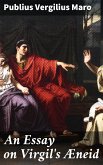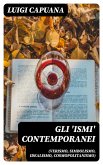In 'An Essay on Virgil's Æneid,' the reader is offered an exhaustive exploration of one of antiquity's most celebrated epics. The work scrutinizes the narrative structure, linguistic nuances, and the thematic complexities of the Æneid, positioning it as a cornerstone of Roman literature. Employing a blend of analytical rigor and poetic appreciation, the essay not only dissects the divine intervention and fate-driven narrative but also situates Virgil's magnum opus within the broader literary context of its time, engaging with both its Greek influences and its political implications during the Augustan age. Publius Vergilius Maro, better known as Virgil, was a Roman poet whose profound explorations of human experience and divinity stemmed from his own formative years marked by the turbulence of the late Republic. His intimate understanding of both the natural world and the political landscape of his time deeply informs the Æneid, as he sought to unify the cultural ethos of Rome through his verses while responding to the patronage of Augustus. This blend of personal reflection and social commentary renders his work both timeless and universally applicable. For readers and scholars alike, 'An Essay on Virgil's Æneid' serves as an essential resource for understanding not only Virgil's narrative artistry but also the intricate societal tapestry of ancient Rome. It ignites a passion for classical literature, inviting the reader to appreciate the enduring legacy of Virgil's epic in the context of both past and present narratives.
Dieser Download kann aus rechtlichen Gründen nur mit Rechnungsadresse in A, B, BG, CY, CZ, D, DK, EW, E, FIN, F, GR, H, IRL, I, LT, L, LR, M, NL, PL, P, R, S, SLO, SK ausgeliefert werden.






![The Aeneid: Virgil's Greatest Hits [Abridged and Annotated] (eBook, ePUB) The Aeneid: Virgil's Greatest Hits [Abridged and Annotated] (eBook, ePUB)](https://bilder.buecher.de/produkte/50/50505/50505780m.jpg)


